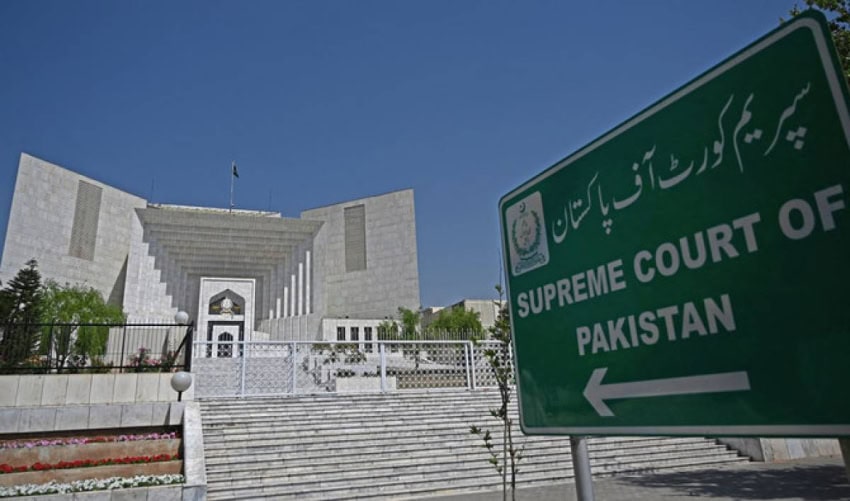ISLAMABAD – The Supreme Court on Friday ruled that the Supreme Court (Review of Judgments and Orders) Act 2023 was unconstitutional.
The verdict has dealt a resounding blow to the aspirations of former prime minister Nawaz Sharif and IPP leader Jahangir Tareen.
The Supreme Court, led by Chief Justice Umar Ata Bandial and flanked by Justice Ijazul Ahsan and Justice Munib Akhtar, declared the much-debated Supreme Court (Review of Judgments and Orders) Act 2023 as unconstitutional. This ruling comes as a stinging setback for the duo who were pinning their hopes on challenging their lifetime disqualifications through this law.
After an intense legal battle spanning six hearings from June 7 to June 19, the three-judge bench delivered its final verdict, having reserved it since June 19. The ruling follows an array of petitions, notably from Ghulam Mohiuddin, Zaman Khan Vardak, the Jurists Foundation represented by CEO Riaz Hanif Rahi, and the Pakistan Tehreek-e-Insaf (PTI), all contesting the legality of the Act.
Announcing the reserved verdict today, the SC ruled that the law had no legal value and termed it to be “unconstitutional”. The court further said that Parliament did not have the power to enact such legislation.
Review of judgments law
On the 5th of May, as a contentious battle with the judiciary raged on, Parliament saw the passage of a significant bill. Unveiled through a supplementary agenda, Senator Irfanul Haque Siddiqui, a trusted associate of PML-N’s paramount figure Nawaz Sharif, took the helm in presenting the bill to the House. Garnering a majority vote of 32-21, the House promptly greenlit its immediate consideration.
The government’s narrative pitched the bill as a means to empower and invigorate the Supreme Court’s authority in reviewing judgments and orders. However, a chorus of dissenting voices within the opposition camp perceived this legislative maneuver as a calculated effort to upturn the disqualification of PML-N’s towering leader Nawaz Sharif.
The act asked to enlarge the jurisdiction of the apex court as expressly provided under Article 188 of the Constitution, which empowers the apex court to review any judgement and to ensure the fundamental right to justice by providing for meaningful review of judgments and orders passed by the SC in the exercise of its original jurisdiction under Article 184(3).
Supreme Court turns down plea seeking full court bench for trials of civilians in military courts














